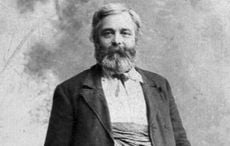When Irish Voice intern EOIN BRENNAN came to New York last year baseball was a game he knew nothing about, but the sport and its earnest fans soon won him over.
When I came to New York late last year my knowledge of baseball was extremely limited, almost to the point that I effectively knew nothing of the game.
I knew of Mark McGwire and Barry Bonds (neither for particularly good reasons, their steroid infamy having traveled around the world further than news of any home run chase), and I knew the names Mickey Mantle, Babe Ruth and Joe DiMaggio.
I had no real idea of the rules of the game. I knew three strikes made an out and a runner must travel all four bases to score a run. I did not know six outs made an inning; I didn’t even really know what an inning was. RBI, OBP, batting averages, ERA -- these all meant nothing to me. A sacrifice fly, a double play, a pinch runner, a reliever or a closer? Again, alien concepts and terms.
In reality, there was almost nothing to start my baseball odyssey with. I was entering the baseball arena from a position of total ignorance, tainted by poorly judged misconceptions of the game and an ignorance of America’s pastime formed largely as a by-product of baseball’s insular nature, the only of the American sports never to achieve any noticeable level of popularity across the Atlantic ocean.
_____________
READ MORE:
In running diary: Red Sox @ Seattle: Wakefield v Furbush 14.08.11
Irish born players in Major League Baseball
_____________
My first experience of the game was on opening day of this season, as I visited Yankee Stadium with some friends from Dublin who had also moved to New York in the past year. All were of a similar level of knowledge (that is, so little as to be insignificant), and all found the game dull and largely unentertaining. Most left by the end of the seventh inning to find warmer surrounds and less extortionately priced beer.
In their defense, it was an icy cold, March afternoon, a parting gift from a bleak winter, with snow falling on us in the exposed bleachers. And to cap it all the food and drink prices seemed like barefaced robbery, even by New York standards.
At the time I agreed with them. This was a boring, drawn out game, and the interest shown towards it by Americans surrounding us was something we simply might never understand.
I left feeling baseball just wasn’t for me. I was sure there was some attraction I was unaware of, but the game was so uninviting to the uninitiated, so full of complex rules and, seemingly, so slowly paced that it would most likely remain background noise to my time in New York.
I soon realized how wrong I was.
From opening day on the baseball noises grew louder. The papers shouted the baseball news from their back pages, the bars hummed with talk of the form of various pitchers and hitters, and all around me the dull drone of the winter New York baseball community soon rose to a deafening roar as spring came around.
I’m not sure how long it took me, but I soon realized I was going to need to give baseball a second chance. I made no concrete plans for this, but resolved to desist from switching to the next channel as soon as I came across the sight of a pitcher on the mound, or heard the incomprehensible calls of the commentators as they told me there was “runners on the corners and two out in the bottom of the sixth.”
I set about my mission to familiarize myself with the game that had seemingly enveloped this city and was threatening to push me to the very precipice of social interaction.
I watched some more, all the time picking up another rule here or a crucial intricacy of the game there. I soon familiarized myself with the basic rules and was able to watch and enjoy entire games without needing to see a flurry of home runs to feel sufficiently entertained.
I learned of Jose Reyes and his irrepressible style of play, I soon knew who Mariano Rivera and Derek Jeter were. What were once just names on the back of Yankees and Mets jerseys were now colossal figures of sporting excellence, their history in the game as impressive as any I had encountered in sport.
One thing I have found most interesting with baseball, the one thing that has drawn me in so entirely, is the way in which the game reveals itself to the newcomer -- slowly, with difficulty and yet filled with surprise.
Whereas the most basic premise of the game is the duel between batter and pitcher and the contest for outs, there is a deep and complex set of rules and styles of play that are almost entirely invisible to the uneducated spectator.
While all newcomers to the game can appreciate the spectacle of the home run hit or the daring athleticism of the base steal, none who are uninitiated in the finer details of the game can see the honed beauty in the cut fastball Rivera throws in the bottom of the ninth.
There is much to take in at first, with stats and percentages coming from all angles -- before, during and after games. In many ways it is a game of numbers, of cold hard data pored over as each player’s batting average, OBP, ERA and RBI percentage are examined for clues as to a man’s true worth.
However, the objective is soon overtaken by the subjective, as the emotional elements of sport fandom soon take root.
On the surface, it is a game that draws us in with the skill of the leadoff hitter, the pace of the base stealer, the power of the cleanup hitter, the mercurial talents of the pitcher, the understated leadership of the catcher. However, it is at once intertwined with the discourse of the magic of the old ballpark, the tales of men of years gone by achieving feats of excellence beyond the grasp of all but the very few, the glory of the perfect game and the walk off home run, the inexplicable and the once inconceivable, played out on the diamond and in the outfield.
It is the sport of the construction worker in a bar in the Bronx and of The New Yorker columnist, the balance of the visceral and the cerebral finely tuned.
I feel, more than any other sport, that baseball has offered me a glimpse into the true America. It is America’s pastime, and a window into America’s soul.
One of my fondest baseball memories to date is my first visit to MCU Park in Coney Island to watch the Brooklyn Cyclones play. I have been to both Yankee Stadium and Citi Field, and yet somehow this small Single A ballpark felt somehow more “American” than the two big league parks I had visited.
The ballpark in itself is an attraction, the manicured perfection of the untouched infield before the first pitch is thrown and the calm, vastness of the deep green outfield. The center fielder isolated on the vast grass of the outfield – behind him nothing but the dark night sky. The low rent advertisements for small, local businesses, the intimacy of the crowd and the players with nobody ____________
READ MORE:
In running diary: Red Sox @ Seattle: Wakefield v Furbush 14.08.11
Irish born players in Major League Baseball
_____________
The ball player, the flag, the warm summer evening, the slow, measured pace of the game matching the calm environs in which it is undertaken -- images of America I had seen many times, but was never familiar with. This to me was the storied American summer’s evening, told in literature, film and television and from generation to generation.
It seems to me now, a couple of months into my baseball education, that what I have learned is not merely a new sport, its rules and how it is best played by those most able. Rather, I have learned about a nation and a city. I have seen a side to the U.S. that does not immediately put itself on display to outsiders, surely to its own detriment.
What we don’t see at home in Ireland is the perseverance over years of failure of the fans of the Red Sox, the Phillies and the Cubs, or the way in which the Yankees and Mets seem at times to be the embodiment of New York City, the beating heart of a chaotic mass of eight million people.
We don’t see the minor leagues, which seem to speak to us from a different age where journeymen would move from team to team, riding the bus just to play ball for enough dollars to survive.
It is by no means perfect, and while clubs such as the Yankees are a symbol of the people of their city they are still a massive corporate entity -- the extortionate cost of attending a game is hardly a tactic anyone could consider inclusive of those fans on a limited budget.
Baseball is a money hungry giant as much as any other sport, tainted by greed and exploitation of fans’ deep lying love for the game. There are also the steroid scandals of the past, and suspicions of their continued use at present.
However, even with these failings baseball appears to me to be the American sport most rooted in the traditions of ages past, the game which holds the tightest grip on the American psyche.
I feel that above all else the greatest gift which baseball has given me is a view of the true America. A beautifully intricate game, which has engendered a deep and proud sporting history where tradition and tales of former greats are never far from a fan’s thought.
And it is all wrapped up and played out before us in this complex game of skill and luck, of drama and frustration. A game where the numbers are king, but the heart rules all.




Comments